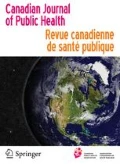Abstract
Funding options for global health research prominently include grants from corporations, as well as from foundations linked to specific corporations. While such funds can enable urgently-needed research and interventions, they can carry the risk of skewing health research priorities and exacerbating health inequities. With the objective of promoting critical reflection on potential corporate funding options for global health research, we propose a set of three questions developed through an open conference workshop and reflection on experiences of global health researchers and their institutions: 1) Does this funding allow me/us to retain control over research design, methodology and dissemination processes? 2) Does accessing this funding source involve altering my/our research agenda (i.e., what is the impact of this funding source on research priorities)? 3) What are the potential “unintended consequences” of accepting corporate funding, in terms of legitimizing corporations or models of development that are at the root of many global health problems? These questions outline an intentional and cautionary approach to decision-making when corporate funding for global health research is being considered by funding agencies, institutions, researchers and research stakeholders.
Résumé
Les subventions de sociétés, et de fondations liées à certaines sociétés, figurent au premier plan des options de financement de la recherche en santé mondiale. De tels fonds peuvent rendre possible des études et des interventions dont on a grandement besoin, mais ils peuvent comporter le risque de fausser les priorités de recherche en santé et d’exacerber les iniquités face à la santé. Afin de promouvoir une réflexion critique sur les options possibles de financement de la recherche en santé mondiale par les sociétés, nous proposons trois questions, élaborées lors d’un atelier d’une conférence ouverte et d’une réflexion sur l’expérience de chercheurs en santé mondiale et de leurs établissements d’attache: 1) Ce financement me/nous permet-il de garder la maîtrise du plan de recherche, de la méthode et des processus de diffusion? 2) Faut-il modifier ma/nos priorités de recherche pour avoir accès à cette source de financement (c.-à-d., quel est l’impact de cette source de financement sur les priorités de recherche)? 3) Quelles pourraient être les ªconséquences imprévues« d’accepter le financement de sociétés–cela pourrait-il légitimer des sociétés ou des modèles de développement qui sont à l’origine de nombreux problèmes de santé mondiale? Ces questions dessinent les contours d’une approche de prise de décision intentionnelle et prudente lorsque des organismes de financement, des établissements, des chercheurs et des acteurs du milieu de la recherche envisagent le financement de la recherche en santé mondiale par les sociétés.
Similar content being viewed by others
References
McCoy D, Chand S, Sridhar D. Global health funding: How much, where it comes from and where it goes. Health Policy Plan 2009;24(6):407–17. PMID: 19570773. doi: 10.1093/heapol/czp026.
Ruckert A, Labonte R. Public-private partnerships (PPPS) in global health: The good, the bad and the ugly. Third World Q 2014;35(9):1598–614. doi: 10.1080/01436597.2014.970870.
Freudenberg N. Lethal but Legal: Corporations, Consumption, and Protecting Public Health. New York, NY: Oxford University Press, 2014; 346 p.
Wiist B. The corporate playbook, health, and democracy: The snack food and beverage industry’s tactics in context. In: Stuckler D, Siegel K (Eds.), Sick Societies: Responding to the Global Challenge of Chronic Disease. Oxford, UK: Oxford University Press, 2011; 204–16.
Galea G, McKee M. Public-private partnerships with large corporations: Setting the ground rules for better health. Health Policy 2014;115(2–3):138–40. PMID: 24508182. doi: 10.1016/j.healthpol.2014.02.003.
Lundh A, Sismondo S, Lexchin J, Busuioc OA, Bero L. Industry sponsorship and research outcome. Cochrane Database Syst Rev 2012;12(12):MR000033. PMID: 23235689. doi: 10.1002/14651858.MR000033.pub2.
Stuckler D, Basu S, McKee M. Global health philanthropy and institutional relationships: How should conflicts of interest be addressed? PLoS Med 2011;8(4):e1001020. PMID: 21532739. doi: 10.1371/journal.pmed.l001020.
O’Connor A. Coca-Cola Funds Scientists Who Shift Blame for Obesity Away From Bad Diets. New York Times, 2015 August 9. Available at: http://well.blogs.nytimes.com/2015/08/09/coca-cola-funds-scientists-who-shift-blame-for-obesity-away-from-bad-diets/9 (Accessed August 21, 2016).
Birn A-E. Philanthrocapitalism, past and present: The Rockefeller Foundation, the Gates Foundation, and the setting(s) of the international/global health agenda. Hypothesis 2014;12(1):e8. doi: 10.5779/hypothesis.vl2il.229.
Butler P. Colonial Extractions: Race and Canadian Mining in Contemporary Africa. Toronto, ON: University of Toronto Press, 2015.
Kirsch S. Mining Capitalism: The Relationship Between Corporations and Their Critics. Oakland, CA: University of California Press, 2014.
Hamilton K. Les dons de l’industrie minière aux universités canadiennes: les enjeux de la philanthropie. Société Québécoise Droit Int 2012;Hors série. Available at: http://www.sqdi.org/fr/les-dons-de-lindustrie-miniere-aux-universites-canadiennes-les-enjeux-de-la-philanthropie/ (Accessed March 21, 2016).
Ottersen OP, Dasgupta J, Blouin C, Buss P, Chongsuvivatwong V, Frenk J, et al. The political origins of health inequity: Prospects for change. Lancet 2014;383(9917):630–67. PMID: 24524782. doi: 10.1016/S0140-6736(13)62407-1.
Mohindra KS, Labonté R. Making sense of the global economy: 10 resources for health promoters. Health Promot Int 2010;25(3):355–62. PMID: 20410191. doi: 10.1093/heapro/daq027.
Herrick C. The post-2015 landscape: Vested interests, corporate social responsibility and public health advocacy. Social Health Illn 2016;38(7):1026–42. PMID: 27037612. doi: 10.1111/1467-9566.12424.
Author information
Authors and Affiliations
Corresponding author
Additional information
Acknowledgements: This article was informed by discussions at a conference workshop organized by the Canadian Coalition for Global Health Research. Brisbois was supported during development of this article by postdoctoral fellowship funding from the Dalla Lana School of Public Health, University of Toronto. Plamondon was funded through a Banting & Best Canada Graduate Scholarship from the Canadian Institutes of Health Research.
Conflict of Interest: Cole was co-investigator on the Mama SASHA project, funded by the Bill & Melinda Gates Foundation (Grant OPP53344, 2009–2015). Larson worked as consultant to Teck Resources Ltd. in support of funding for scaling up zinc treatment of childhood diarrhea in sub-Saharan Africa and South Asia. Nixon works as a policy consultant for the International AIDS Vaccine Initiative.
Rights and permissions
About this article
Cite this article
Brisbois, B.W., Cole, D.C., Davison, C.M. et al. Corporate sponsorship of global health research: Questions to promote critical thinking about potential funding relationships. Can J Public Health 107, e390–e392 (2016). https://doi.org/10.17269/CJPH.107.5653
Received:
Accepted:
Published:
Issue Date:
DOI: https://doi.org/10.17269/CJPH.107.5653



